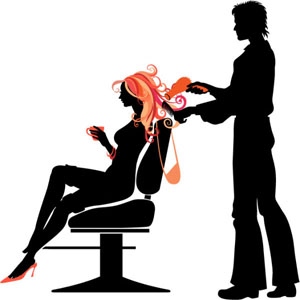I spent the five happiest years of my life in a morgue. As a forensic scientist in the Cleveland coroner’s office I analyzed gunshot residue on hands and clothing, hairs, fibers, paint, glass, DNA, blood and many other forms of trace evidence, as well as crime scenes. Now I'm a certified latent print examiner and CSI for a police department in Florida. I also write a series of forensic suspense novels, turning the day job into fiction. My books have been translated into six languages.
Not often. Since a glove itself isn't secreting sweat and oils, there's really nothing for it to make a print with until it gets a little dirty or if the surface it's touching is a little dirty.They can be wiped off as easily as any other print.
It could help if it's pulled hair, not cut, and if they were super-careful to leave no fingerprints or any other kind of possible DNA samples so that the police had no choice but to test the hairs for possible suspect DNA. It would also depend on the scene--if it's a heavily traveled bank, for instance, so there is a ton of discarded hairs, the police would hardly test them all. If they leave a tuft of hair on say, a chain-link fence used to get away, where the police couldn't help but notice it, then they'd have a better chance of making it a useful diversion.
They could try not to leave it in the first place--wear gloves and a hat, and don't cut yourself on the window you broke to gain entry. And wear a mask since you never know who has cameras where in this day and age!
The title 'forensic scientist' doesn't mean anything in particular--job titles will vary by the agency. It would be better to major in a natural science or in forensic science so you could get as much lab experience as possible, but the only way to know for sure what the job requirements are is to call the place(s) you want to work and ask.
Employment Lawyer
 Can a man sue if he's denied a job at Hooters?
Can a man sue if he's denied a job at Hooters?
Hairstylist and Makeup Artist
 How much am I supposed to tip my hairstylist?
How much am I supposed to tip my hairstylist?
Rap Promoter / Manager
 Do rappers ever stage beefs with each other as a PR stunt?
Do rappers ever stage beefs with each other as a PR stunt?
Yes. Unless I could make it as an architect. I would really like that too.
Yes, we do it every day.
Plan to go to college and study biology, and try to find a college that has the specific major and courses you want.
-OR-
 Login with Facebook
Login with Facebook (max 20 characters - letters, numbers, and underscores only. Note that your username is private, and you have the option to choose an alias when asking questions or hosting a Q&A.)
(A valid e-mail address is required. Your e-mail will not be shared with anyone.)
(min 5 characters)
By checking this box, you acknowledge that you have read and agree to Jobstr.com’s Terms and Privacy Policy.
-OR-
 Register with Facebook
Register with Facebook(Don't worry: you'll be able to choose an alias when asking questions or hosting a Q&A.)